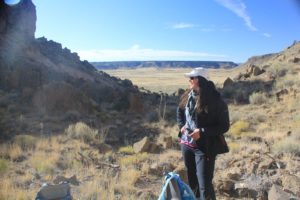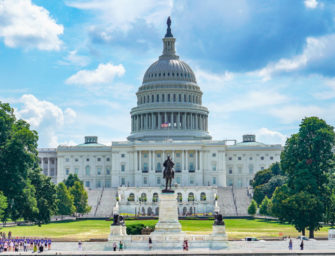The Start of the New Academic Year in an Age of “Alternative Facts”

Volcanologist, Postdoctoral Researcher Janine Krippner
It’s that time of year in the U.S. where geoscientists are back from the field with new data, new experiences, and a new academic year lies ahead of us. Many students may have just gone into the field for the first time, conducting research on volcanoes, deserts, streams, oceans, or any other of our natural and developed areas to better understand our environments so that we can protect the world we live in. Graduates become teachers for the first time as knowledge is passed down through the generations. Heading back into the classroom is where students can learn from our personal experiences and the collective knowledge of generations of scientists around the globe. The classroom is a place to not only learn about what we already know, but also to think forward about what we don’t know, and to ask new questions.
As a scientific community, we have a growing responsibility that has changed rapidly with the age of 24-7 online communication and media: to emphasize critical thinking and sharing what we know, how we know it, and why it is important. We have the responsibility to teach our students not only how to think critically about the science that we teach them, but also about the world around them, and on the digital screens in front of them. We can teach them to explore their own voice and to empower them to stand up for what they believe in within their own communities, or for a much broader audience if they so choose.
We live in an age where people are asked if they believe in climate change instead of asking if they understand it. An age where people can start a YouTube channel for predicting disasters and gain a following that will attack scientists who speak out against them. An age where scientists have realized that we no longer have a choice about sitting back and staying quiet, online and politically. An age where so many of us have found a public voice that we never had before.
Our classrooms have expanded as we can now instantly connect with people around the world through a 280 character tweet, or a live online public presentation. Now, we can not only publish information but we can connect and have discussions with people near and far. Here, we can show the world who we are, we are people who care about our world and the people and life within it. We can work to improve the current atmosphere where science is often discounted. As we collectively head back into the classrooms, both in person and online, we do so as an increasingly connected community. As we welcome the next generations into our community, we must continue to do all that we can to help people from diverse backgrounds feel that they are appreciated and that they can thrive here too. As we head back into our classrooms in the world where “alternative facts” spread faster than truth, my hope is that we continue to pass on our curiosity and passion for leaving the world a better place than we found it.




Very nice text. Thank you Dr Krippner. Scary times, but our passion and dedication will prevail and be passed on to future generations.